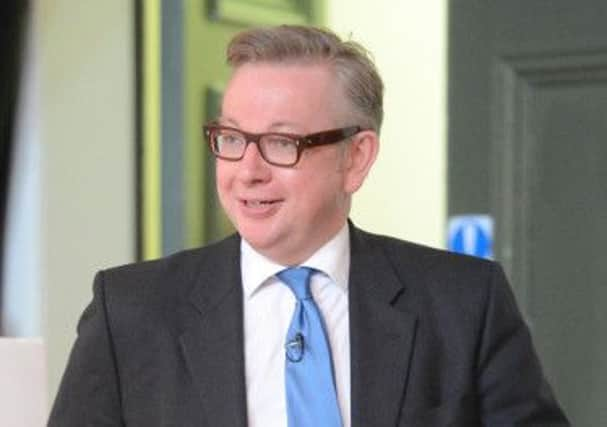Leaders: First World War centenary | Sochi 2014


As we approach the centenary of its outbreak, there will be a deluge of books and TV documentaries on the war and its colossal sacrifice, adding to the thousands of books that have already sought to explain the origins of this epochal conflict.
Two best-sellers currently are Christopher Clark’s The Sleepwalkers: How Europe Went to War in 1914, running to almost 670 pages, and Max Hastings’s Catastrophe, equally demanding at just over 600 pages – and this covering only the first year of the slaughter. German militarism, Serbian nationalism, the paranoia of Austria-Hungary and Russian machinations have all been cited as major factors.
Advertisement
Hide AdAdvertisement
Hide AdAdd to this obdurate military leadership and the unfailing ability of European leaders to talk past each other as we entered the abyss and even a century later there is no lack of conflicting interpretation.
Into this has stepped Education Secretary Michael Gove with an attack on domestic left wing interpretations of the conflict. He cites three examples – Oh, What a Lovely War, The Monocled Mutineer and Blackadder as representative of a biased and severely critical approach to the war and to the allied leadership of it – the UK’s in particular – in which our military commanders are portrayed as incompetent dolts with little regard for the lives of those under their command.
This critique is by no means new. The works he refers to are old, Joan Littlewood’s 1963 play in particular a period piece. And its approach has already been almost totally smothered by subsequent books and documentaries taking a more analytical stance.
It may be said in defence of these works that they expose the horror of the conflict and its futility. Yet few could possibly accuse Max Hastings’s unsparing account as a romanticised romp or one that glorifies the military leadership of the time. In any event, a challenging critique of political and military leadership outwith the circle of informed scholarship is neither new nor indeed unhealthy: we are, after all, still debating the rights and wrongs of our involvement in the Iraq war.
There will always be dissenting voices when it comes to conflict. And who can say in 2014 that one narrative is definitively correct? Moreover, much of what has been said in the last 50 years could not possibly have been uttered in the previous 50, because such questioning of the official line would have been fiercely denounced.
Where Mr Gove has a point is in presentations of the history of the war that are glib to the point of supercilious. This century-defining conflict has many important lessons for us today. And it is only right that in marking the centenary we seek to do justice to its full complexity.
We should not shirk from the entangled origins of this conflict any more than we should present the physical conflict as anything other than the horror that it was.
Olympic pull-out possibility rises
TWO appalling suicide bombing attacks in the heart of Volgograd, and threats of more to come: a very dark shadow has fallen across the Winter Olympics in Sochi next month. The attacks which resulted in 31 deaths are close enough to the Games to be seen as a direct threat to this event. Political sensitivities over Russia’s human rights record have given way to fears for the security of the thousands of athletes.
Advertisement
Hide AdAdvertisement
Hide AdTwo questions now loom for all those taking part: have the Russian government and military done enough to cauterise the threat of further terrorist assaults? And if the answer to that is uncertain, should countries run the risk of competing in such an environment?
Mike Hay, the chef de mission for the British Olympic Association, has said it is not 100 per cent certain the team will compete because of the security situation. Now Allan Wells, whose greatest triumph was at the politically-charged Moscow Olympics, says this is a graver situation and that the British team has to be confident of security precautions. Their lives are directly at stake.
No one wants to give in to terrorists if their objective is to derail the Games, but an attack would be a disaster.
The dilemma for the security forces is that an unsparing clampdown in the Caucasus may have the effect of catalysing further outrages. Any further terrorist attacks in the approach to the Games over the next three weeks would leave British Olympic officials with a huge call to make.
The safety of all those representing Britain – support staff as well as athletes – is of paramount concern. A pull-out would be a massive blow for the athletes and indeed for the entire Games if other countries come to a similar view. However unthinkable such an outcome, it is now one we need to acknowledge as a possibility.